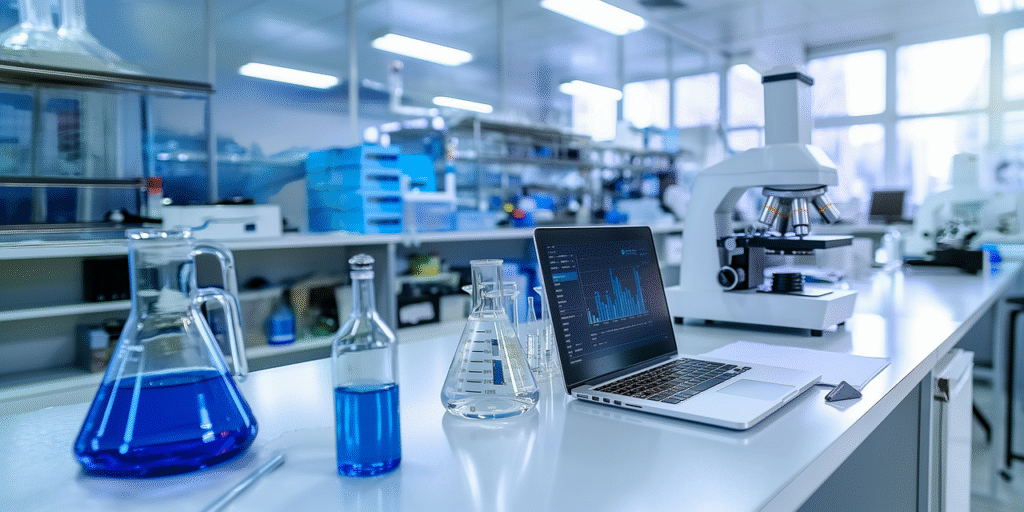Due to its implications in numerous fields, including medicine, the environment, food production, and agriculture, biotechnology has recently gained significant importance.

This field, which combines technology and engineering with other sciences such as biology, chemistry, and mathematics, has revolutionized the way we understand and work with living beings and has created immeasurable potential to improve both our quality of life and that of our planet.
The use of microorganisms for food fermentation
such as in the making of beer and bread, dates back thousands of years. Our ancestors may have been unaware of what was happening at the time, but biotechnology has existed ever since. This field did not undergo significant development until the 20th century, when it became a modern science. The discovery of the structure of DNA in 1953 by James Watson and Francis Crick, based on the research of Rosalind Franklin, was one of the most significant turning points, as it provided the framework for the study of genetics and genetic engineering.
Medical advances made possible by biotechnological breakthroughs over the past century, a clear example of which is the synthesis of recombinant insulin, used to treat diabetes. Before this development, hundreds of pig pancreases were used to extract a small amount of insulin that was only partially compatible with human needs.
However, genetically modified bacteria can produce it in large quantities as a result of genetic engineering. This has made insulin more accessible, significantly less expensive, and has prevented the allergic reactions caused by animal insulin.
The development of treatments that correct genetic disorders by injecting “good” genetic material into diseased cells was another important advance. The use of this method in the treatment of diseases such as muscular dystrophy and cystic fibrosis has yielded encouraging results. Furthermore, biotechnology has played a pivotal role in the development of next-generation medications, including monoclonal antibodies used to treat autoimmune disorders and cancer.
We look forward to the advances in contemporary biotechnology in recent years. For example, the CRISPR-Cas9 method for genome editing has completely changed the efficiency and precision with which we can modify and correct genes. This holds out hope for the coming years, as it has the potential to eradicate genes that cause hereditary diseases, improve crop resistance to pests and diseases, and even correct genetic defects.
The agricultural sector has also benefited greatly from the use of biotechnology. Crops can now be more productive, more resilient to adverse environmental conditions, and less dependent on pesticides, instead utilizing biocontrol microorganisms. These advances will undoubtedly help solve the food problem of a constantly growing world.
Finally, we can’t help but mention that biotechnology also plays a role in why we no longer need to wear masks and why COVID-19 has taken a backseat, as mRNA vaccines are some of the best examples of cutting-edge biotechnology.
The potential of biotechnology is intriguing for the future. In fields such as gene therapy and personalized medicine, progress is expected to be more rapid and substantial over the next decade. New technologies that will help us understand the genomics and proteomics of what happens in our cells and those of other organisms will continue to amaze us, and what better day to get excited about all this than today, June 16th, Biotechnology Engineer’s Day, when we can already anticipate that biotechnology will continue to generate discoveries and applications that will help us perceive our planet and humanity in a more optimistic light.
